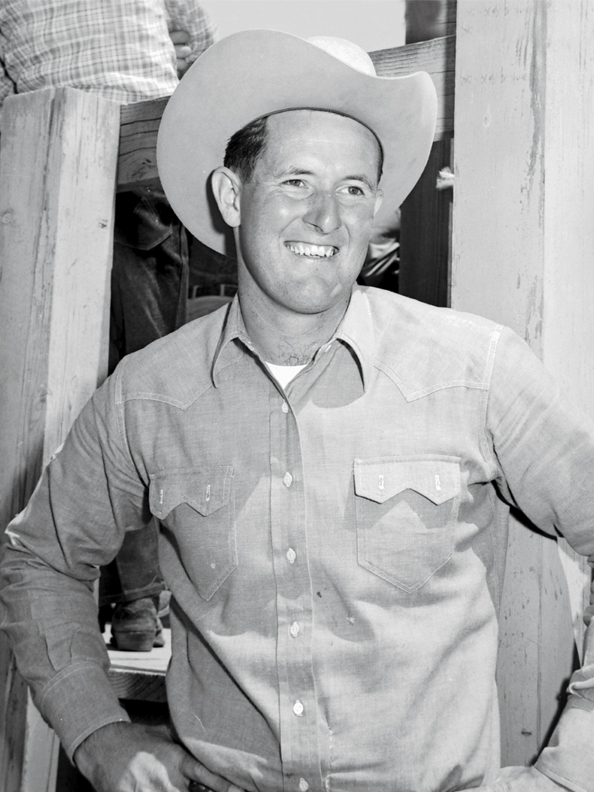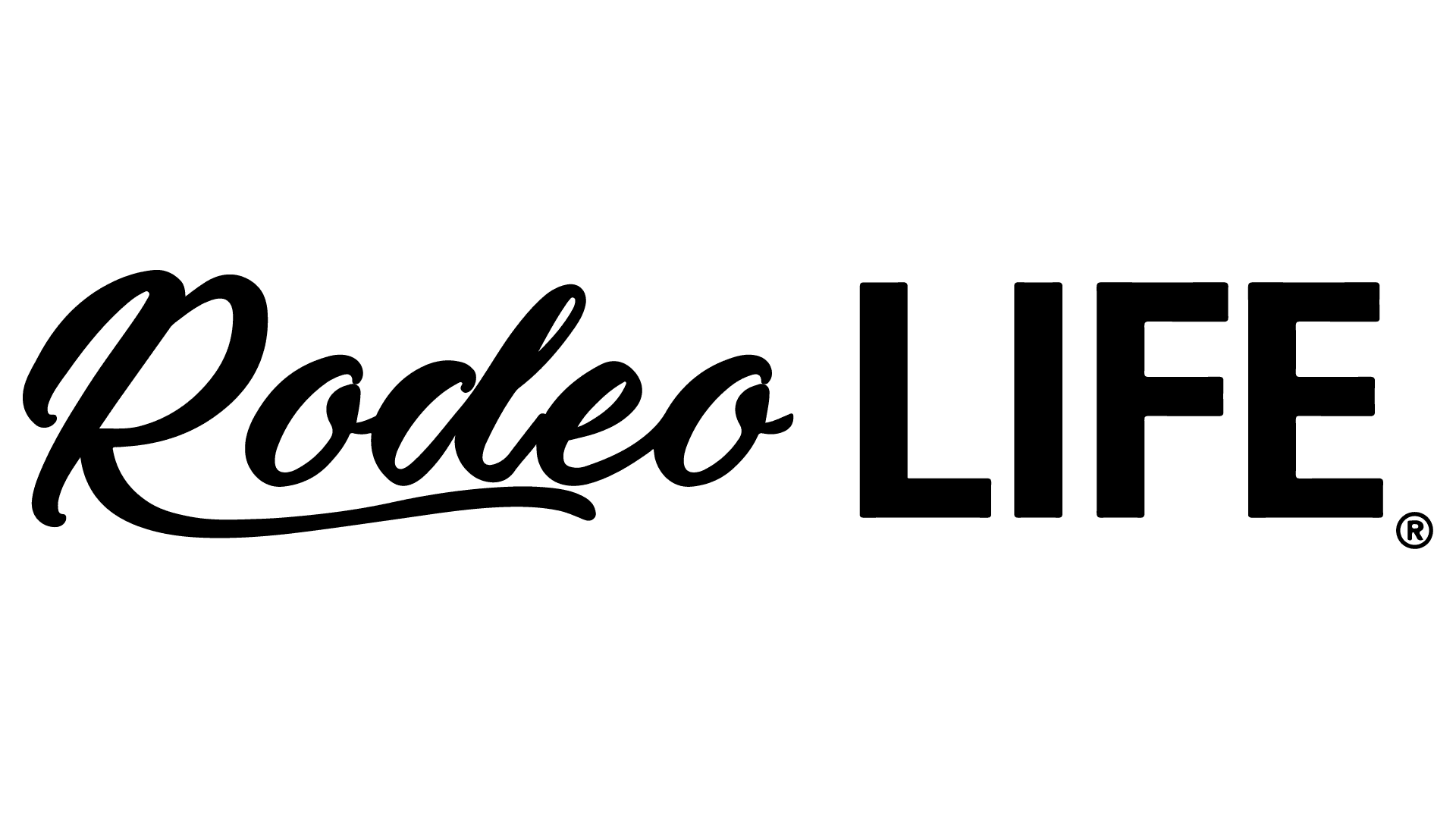 Jack Roddy was born in San Francisco on Oct. 3 1937 to parents who had come from Ireland. His father was 18 when he arrived in San Francisco and he bought a 12 stool beer and wine joint. From that small beginning, he ended up owning the longest bar in the world (7 bartenders in one shift, and when they opened the Golden Gate Bridge, they rode 56 horses in the bar at one time), as well as a rodeo arena located in south San Francisco. His dad met his first world champion, Charlie Maggini in 1929 and 1930. He bought a riding stable and rodeo grounds in Colma, Calif., and that’s where Jack grew up, riding and roping with his father’s friends in the rodeo business.
Jack Roddy was born in San Francisco on Oct. 3 1937 to parents who had come from Ireland. His father was 18 when he arrived in San Francisco and he bought a 12 stool beer and wine joint. From that small beginning, he ended up owning the longest bar in the world (7 bartenders in one shift, and when they opened the Golden Gate Bridge, they rode 56 horses in the bar at one time), as well as a rodeo arena located in south San Francisco. His dad met his first world champion, Charlie Maggini in 1929 and 1930. He bought a riding stable and rodeo grounds in Colma, Calif., and that’s where Jack grew up, riding and roping with his father’s friends in the rodeo business.
“I was two when I watched my first rodeo and that’s all I wanted to be. We bought the ranch in San Jose, and I started riding calves and competing. I won my first buckle at 8 showing bridle horses. I was 14 years old when I won my first All Around.” By the age of 15, Jack started competing in the RCA, winning the wild horse race at an RCA rodeo. “In those days you could rodeo on a high school card, I always wanted to be a pro – Bill Linderman signed my card.”
Jack worked every event, and went to Cal Poly, where he was the 1959 CNFR All Around and Steer Wrestling Champion. He won four events at the Pendleton Roundup grounds, at a college rodeo – bareback, saddle bronc, bull riding, and steer wrestling.
After Cal Poly, he stayed there, and got an Associates of Arts in Cal Poly. “We were the Notre Dame of rodeo, producing more champions than any other college.” Years later, when Cal Poly needed $100,000 to keep the rodeo team going, Jack got on the phone and helped produce a two day function that raised more than twice what the college needed to continue the program.
He punched his first ticket to the NFR in 1962 in two events, team roping with John Bill Rodriquez, and steer wrestling. “All my life I wanted to be cowboy, but I was around my idols at the NFR, it was a tremendous honor.” He made six more appearances at the NFR. In 1966, he won the world championship in steer wrestling, setting a record for total earnings in the event. He also won the average that year. He followed up with another championship in 1968.
He remembers the last bareback horse he got on. “I was leading the world in the bull dogging and up top in the All Around, September came and I had only placed in the bulldogging. My home town had a rodeo and I got up in the bareback – all the top bareback riders were there. I drew Cheyenne, a big pinto…more money won on that horse … if you made a mistake he’d throw you out of the arena. I spurred him and I marked a 179 – he fit me to a tee. That’s the last bareback horse I rode.”
He retired from rodeo in 1971. “I love rodeo, but knew I had to do other things,” he said. Jack had been recruited by Bill Linderman to serve on the PRCA board in 1962, and continued to serve on and off for 16 years.
Jack made another run at the rodeo arena when he joined the National Senior Pro Rodeo. “In those days I weighed 240; I always tried to do things in pairs, so I told my wife I was going to try to win the bull dogging. It took me five times to get to the top of the ridge and I got in shape, and went on the senior tour in 1991, won it and did it again the following year. I threw my last steer in 4 flat with a crippled foot and never did it again.” He competed in 12 senior rodeos in one year. “The first year we had the Finals in Reno, and it took three years to get it back,” he said. “We got Bob Tallman to announce and by the third year it was packed and I got out of it.”
He hasn’t roped in a year. “I got bucked off five years ago and I punctured a lung and broke ribs. So now my wife does all the riding. I’ve been there, done that, and now I enjoy watching others – A wise man knows when to get off the stage, Will Rogers.”
He and his wife, Donna, still run cattle on their ranch in Brentwood, California. “I ran cattle all my life, we had rodeo steers that we supplied to rodeos. For the last 14 years, we have run cattle that come from Hawaii. Since they can’t raise corn or grain over they, they wean the calves and put them on containers and ship them to our place.”
He has seen a lot of change in rodeo. “When I won the Finals in Oklahoma City, I took home $1,700 – if it was today it would have been close to a couple hundred thousand. In Los Angeles, in the round one, fourth, third fifth, won $616 and the champion won $1,305. How many cowboys said I’ll never have another poor day.
“Everything I got to this day I can contribute to the rodeo business – not in the arena, but the people I’ve met and the doors that have opened,” he said. “Always wear a nice cowboy hat and be proud of who you are. I didn’t win many world championships, but I never failed to sign autographs and it opened doors.”
“I filled my bucket list time and again and enjoyed it.”
Jack Roddy was the recipient of the Ben Johnson Memorial Award at the 2016 Rodeo Historical Society Hall of Fame Induction at the National Cowboy & Heritage Museum in Oklahoma City. “Gordon Davis started with Cecil and I carried it on,” said Jack. Ben Johnson was very important for rodeo; Gordon Davis, Cecil Jones and Jack Roddy were instrumental in establishing this award. This is chosen by the men who have received it earlier








